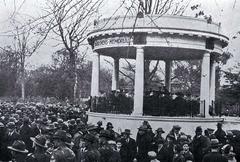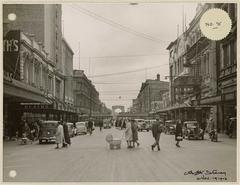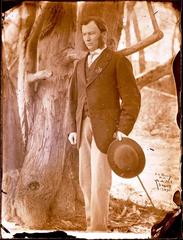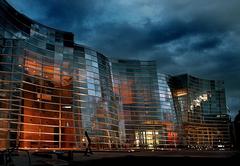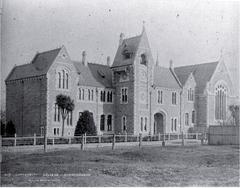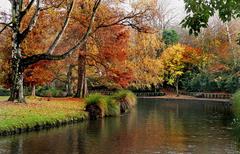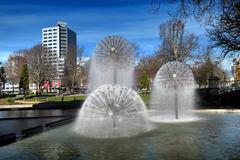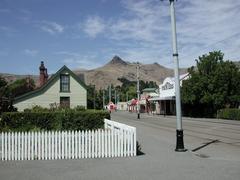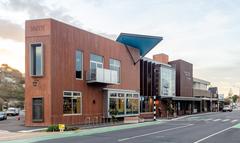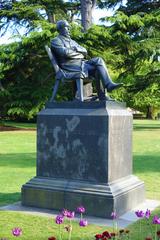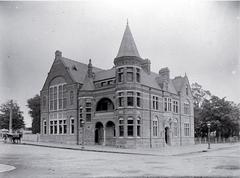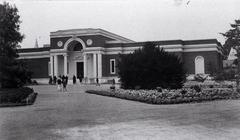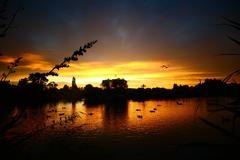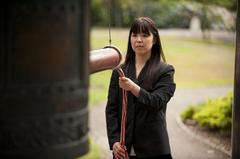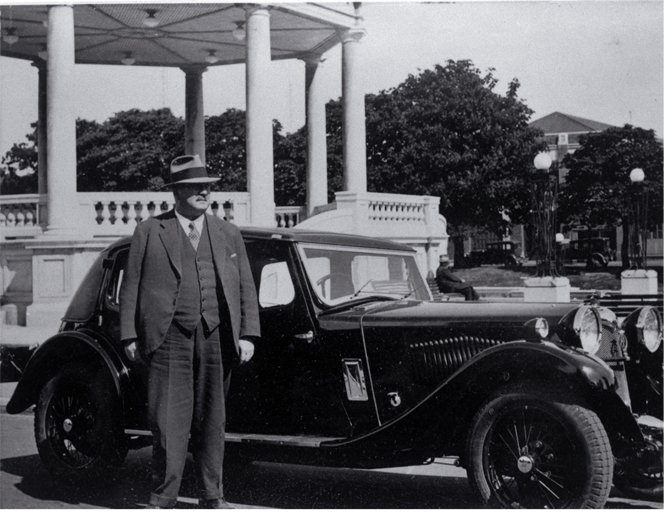
Edmonds Band Rotunda, Poplar Crescent Building And Balustrades
Edmonds Band Rotunda Visiting Hours, Tickets, and Christchurch Historical Sites Guide
Date: 03/07/2025
Introduction
Nestled along the Ōtākaro / Avon River in Christchurch, New Zealand, the Edmonds Band Rotunda, Poplar Crescent, and their iconic balustrades are touchstones of the city’s architectural and cultural heritage. Gifted to Christchurch in 1929 by the influential philanthropist Thomas Edmonds—famed for his “Sure to Rise” baking powder—the site was designed as both a community gathering place and an emblem of civic pride, echoing the city’s ambition to emulate the garden cities of England. Overcoming adversity from the 2010 and 2011 Canterbury earthquakes, the rotunda and its surroundings have been meticulously restored, reaffirming their place at the heart of Christchurch’s vibrant community.
This guide provides a comprehensive look at the Edmonds Band Rotunda, including its history, architectural features, visiting hours, ticketing, accessibility, restoration efforts, and practical tips for visitors. Whether you’re a history buff, architecture enthusiast, or simply seeking a scenic spot to relax, this article is your essential resource for exploring this Christchurch landmark. For authoritative information and updates, consult resources such as Peeling Back History, Open Christchurch, and the Christchurch City Council.
Table of Contents
- Origins and Philanthropic Vision
- Construction and Architectural Features
- Visiting the Edmonds Band Rotunda: Hours, Tickets, and Accessibility
- Historical Significance and Community Role
- Earthquake Impact and Restoration
- Landscape Evolution and Cultural Layers
- Practical Visitor Information
- Frequently Asked Questions (FAQs)
- Plan Your Visit
- References and Further Reading
Origins and Philanthropic Vision
The Edmonds Band Rotunda and Poplar Crescent stem from the philanthropic vision of Thomas Edmonds, a prominent Christchurch businessman. In 1929, to mark 50 years in business, Edmonds donated a suite of civic amenities—including the rotunda, clock tower, lamp standards, and the riverside promenade—to beautify the city and provide public spaces for recreation and community events (Peeling Back History; Open Christchurch). His gifts, valued at £5,000 (a substantial sum at the time), reflected both his personal love of brass band music and his commitment to civic improvement.
Construction and Architectural Features
Edmonds Band Rotunda
Completed in 1929 and designed by architect Victor Hean, the rotunda is a classical, octagonal structure with a striking copper dome—a rare feature in New Zealand’s public architecture (Christchurch City Libraries, p. 17). Its High Renaissance style is characterized by symmetry, an open colonnade, ornate balustrades, and a domed roof supported by reinforced concrete columns. The rotunda was specially positioned for both its picturesque riverside setting and its acoustic suitability for outdoor concerts (Commons Wikimedia).
Poplar Crescent and Associated Structures
Poplar Crescent refers to the landscaped riverside stretch flanked by the rotunda and Edmonds Clock Tower. Named for both Edmonds’ birthplace in London and the Lombardy poplars planted along the river, the area features balustrades, lamp standards, and gentle curves that mirror the Avon River’s flow (Open Christchurch). The associated structures, including the adjacent pavilion, were designed to echo the classical style, creating a harmonious civic landscape.
Visiting the Edmonds Band Rotunda: Hours, Tickets, and Accessibility
- Visiting Hours: Open daily, typically from 8:00 AM to 6:00 PM (may extend to 8:00 PM in summer).
- Tickets and Entry: Admission is free for casual visits. Some special events may require tickets (CCC Parks and Gardens).
- Accessibility: Wheelchair-accessible paved paths and ramps are provided. Some riverbank areas have steps; caution is advised.
Travel Tips:
- The site is within walking distance of the city center, with public transport and parking nearby (note that spaces may be limited during events).
- Bring a camera for the copper dome and scenic river views.
- Dogs are allowed on leads.
Guided heritage walks are available during the Christchurch Heritage Festival and by arrangement with local tour operators.
Historical Significance and Community Role
The rotunda and Poplar Crescent have long served as focal points for public concerts, community gatherings, and leisure. Brass band performances—once the highlight of Christchurch’s social calendar—continue to evoke the city’s musical traditions (ChristchurchNZ). The area exemplifies the city’s “Garden City” ethos, blending natural beauty with urban sophistication.
The site is recognized as a Category 2 historic place by Heritage New Zealand and features prominently in Christchurch’s heritage strategies (Wikipedia: List of Historic Places in Christchurch).
Earthquake Impact and Restoration
The 2010 and 2011 Canterbury earthquakes caused significant damage to the rotunda, resulting in its careful deconstruction in 2012. The 70-tonne copper dome was salvaged, while the base and columns were rebuilt with modern seismic strengthening (Newsline CCC; Wikipedia). Restoration, completed in 2017, preserved the original architectural integrity while adding discreet modern enhancements, such as weather protection screens.
The adjacent pavilion and balustrades were also restored, and the landscape was rehabilitated, preserving mature trees and historic features (Open Christchurch; District Plan Statement of Significance).
Landscape Evolution and Cultural Layers
Before European settlement, the Avon River’s banks were wetlands significant to local Māori. The transformation into Poplar Crescent reflects colonial and Victorian ideals of civic beauty, while indigenous and colonial plantings coexist, illustrating Christchurch’s layered history (Open Christchurch).
Today, the precinct hosts regular events, guided walks, and educational programs, continuing to serve as a vibrant community hub (Explore Christchurch).
Practical Visitor Information
Location: Cambridge Terrace at Worcester Boulevard, central Christchurch—adjacent to the Botanic Gardens and within easy reach of the city’s major attractions (Nomadic Matt).
Nearby Attractions:
- Christchurch Botanic Gardens
- Avon River punting
- Riverside Market
- Canterbury Museum and Art Gallery
Facilities:
- Seating and picnic areas
- Public restrooms nearby
- Interpretive signage on history and architecture
Best Time to Visit: Spring and summer for events and vibrant scenery.
Safety: Well-lit and patrolled; standard urban vigilance is recommended.
Weather: Temperate climate; check forecasts before visiting (Wanderlog).
Frequently Asked Questions (FAQs)
Q: What are the Edmonds Band Rotunda visiting hours?
A: Generally open from 8:00 AM to 6:00 PM; may extend to 8:00 PM in summer.
Q: Is there an entry fee?
A: No, admission is free. Some events may require tickets.
Q: Is the site wheelchair accessible?
A: Yes, with paved paths and ramps.
Q: Are guided tours available?
A: Yes, especially during heritage festivals and by arrangement.
Q: Are dogs allowed?
A: Yes, on leads.
Q: What other sites are nearby?
A: Poplar Crescent, Edmonds Pavilion, Clock Tower, Botanic Gardens.
Plan Your Visit
Experience the blend of heritage, architecture, and community at the Edmonds Band Rotunda and Poplar Crescent. For the latest information on events, access, and guided tours, download the Audiala app and consult the Christchurch City Council or Open Christchurch websites.
References and Further Reading
- Peeling Back History: The Edmonds
- Open Christchurch: Poplar Crescent and Edmonds Band Rotunda
- ChristchurchNZ: Thomas Edmonds Band Rotunda Project
- Christchurch City Libraries: Architectural Heritage Publication
- District Plan Heritage Assessment, Christchurch City Council
- Newsline CCC: Restoration of Edmonds Band Rotunda
- Wikipedia: Edmonds Band Rotunda
- Christchurch City Council Parks and Gardens








